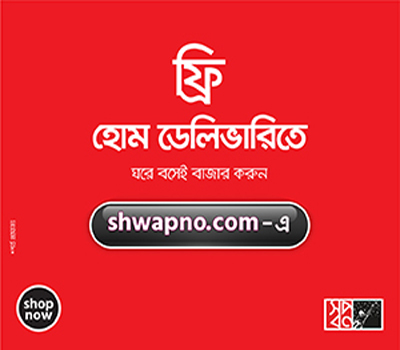
Nabil Group Working for the Welfare of the Nation and Its People
Published:
১৯ মার্চ ২০২৫, ১৫:৫২

In a commendable move during the holy month of Ramadan, Nabil Group of Industries has reduced prices across all its products, garnering significant positive response from consumers. This initiative aims to alleviate the financial burden on families during a time when expenses typically rise.
Starting from the first day of Ramadan, consumers have been able to purchase essentials such as rice and oil at reduced prices, a practice that will continue throughout the month. To ensure transparency and prevent overpricing, each product package clearly displays the discounted price, ensuring that consumers benefit directly from this initiative.
Local consumers have expressed their appreciation for this effort. For instance, Shafiqul Islam, an auto-rickshaw driver from Poba, shared his satisfaction at purchasing Nabil's Foodella mustard oil at a lower price, noting that while prices often rise during Ramadan, he was pleased to find them reduced. Similarly, Rahila Begum from the same area expressed her happiness at being able to buy oil at a more affordable rate, extending her gratitude to Nabil Group for their initiative.
Bayezeed Hossain, a school teacher from Kharkhari, highlighted that during Ramadan and Eid, items like chinigura rice usually become more expensive. However, this year, he purchased Nabil's chinigura rice, finding it not only more affordable but also of superior quality compared to other brands. He praised Nabil Group's approach, stating that while many businesses exploit increased demand during Ramadan to hike prices, Nabil Group has set a commendable example by reducing them, potentially inspiring other businesses to follow suit.
Retailers have also observed a notable increase in customer turnout. Rafiqul Alam, a seller of Nabil Group's products, reported that the price reductions have led to higher customer footfall compared to previous years, with steady sales from morning till evening.
Aminul Islam, the founder and Managing Director of Nabil Group, emphasized that Ramadan is a significant month for Muslims, offering a special opportunity for self-purification. He noted that while some view this month as a chance to earn extra profit, Nabil Group operates with the welfare of the country and its people in mind. In addition to reducing prices, the group has undertaken initiatives to support the underprivileged, aiming to provide food assistance to at least 50,000 families during Ramadan. He further stated that, contrary to the conventional business strategy of capitalizing on market demand during Ramadan for higher profits, Nabil Group has chosen to reduce prices even from their predetermined rates, bringing relief to the lives of the poor, lower, and middle-income individuals. The group takes pride in standing by the people of the country and remains dedicated to their welfare.
Established in 2006 with a modest capital of 500,000 BDT, Nabil Group has grown to become the country's fourth-largest importer of food products. They lead in the processing and marketing of agricultural products, contributing to the national economy and ensuring fair prices for farmers' produce. The group has also generated substantial employment opportunities and gained attention for producing quality products.
Alhaj Md. Jahan Baks Mandal, Chairman of Nabil Group, acknowledged that daily expenses increase for all families, regardless of their financial status, during Ramadan. With this in mind, the group has taken steps to support the underprivileged and, through reduced prices, has enabled low and middle-income individuals to purchase products at lower costs. He assured that such initiatives from Nabil Group will continue in the future.
For over a decade, Nabil Group of Industries has played a significant role in the supply and processing of food and agricultural products in Bangladesh. They are among the country's largest importers of commodities like wheat, lentils, peas, and soybeans. According to the National Board of Revenue's 2024 data, Nabil Group ranked fourth among the top seven essential commodity importing companies in the country. In the food product market, Nabil Group holds a 10% share, closely following TK Group, which has a 1% higher share. City and Meghna Group occupy the second and first positions with 5% and 7% higher shares, respectively. Despite these competitors having over five decades of business experience, the relatively young Nabil Group, with its 18-year presence, continues to make significant strides. Their market shares in various commodities are as follows: lentils 49%, chickpeas 57%, peas 39%, wheat 24%, feed 16%, soybeans 16%, maize 11%, cold storage potatoes 6%, and paddy 7.62%.
Nabil Group's commitment to reducing prices during Ramadan and supporting the underprivileged has not only provided relief to consumers but has also set a positive example in the business community. Their efforts reflect a dedication to societal welfare and ethical business practices, resonating well with consumers and stakeholders alike.



Comment: